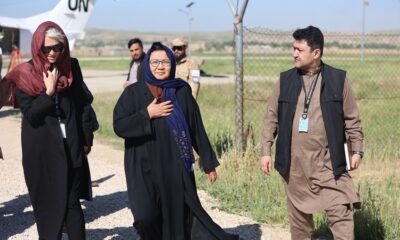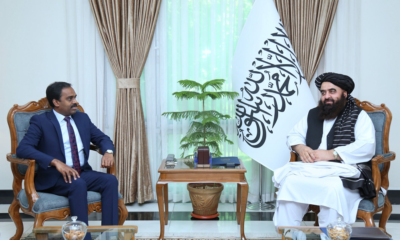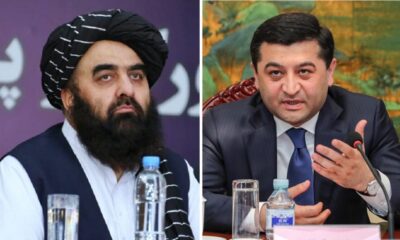Latest News
MSF reports basic medical needs of Afghans are not being met
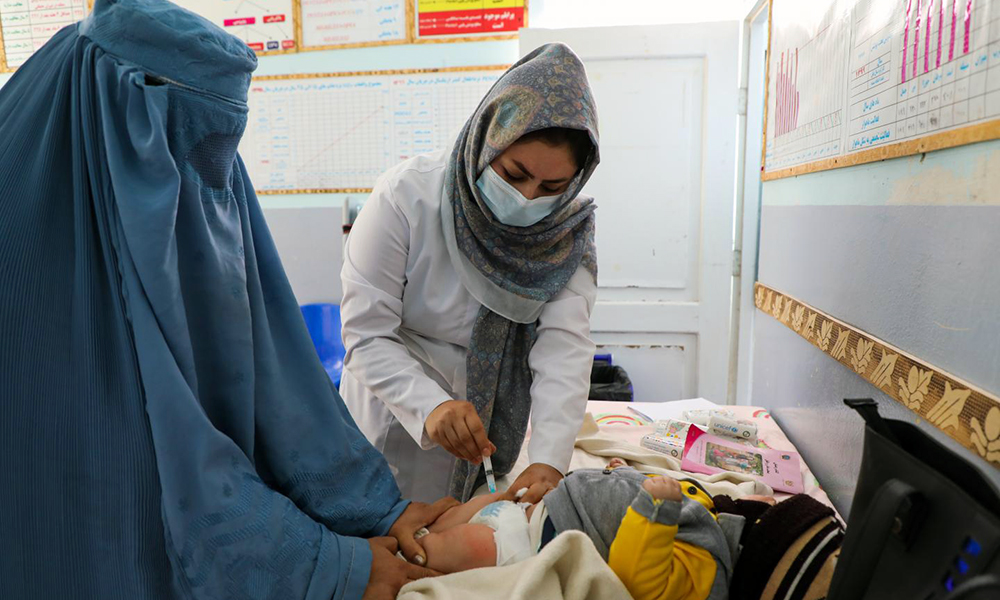
Médecins Sans Frontières/Doctors Without Borders (MSF) on Tuesday said despite the international community having touted the achievements of Afghanistan’s health care delivery model, strong evidence shows that the health system is unable to meet the basic medical needs of Afghans.
“Public health facilities in Afghanistan are under-funded and under-resourced, lacking qualified personnel, equipment, medicines and medical supplies.”
In a briefing paper published Tuesday MSF said Afghans today are struggling to access basic healthcare facilities as a result of violence and insecurity, poverty, and an under-funded and under-resourced health system.
“Every day, Afghans must undertake dangerous journeys across active frontlines and mined roads, through checkpoints and areas controlled by armed groups to seek medical care.
“They are often unable or too afraid to leave their homes, and, when medical emergencies happen, such delays can prove fatal.”
MSF also stated that healthcare facilities in Afghanistan are attacked more often than almost anywhere in the world, forcing their temporary or permanent closure and depriving millions of access to vital medical services.
“In addition to creating a climate of fear, such attacks severely limit access to vital medical services by forcing health providers to suspend or discontinue activities,” MSF reported.
Citing World Health Organization (WHO) findings, MSF stated that up to three million people were deprived of essential health services in Afghanistan in 2020 as a result of health facilities forced to close by parties to the conflict.
In addition, the organization said the humanitarian crisis, compounded by the health and socioeconomic shocks of the COVID-19 pandemic, is worsening throughout the country.
According to MSF, the COVID-19 pandemic has worsened the financial hardship for Afghans and that many have lost their livelihoods as a result of border closures, reduced commercial activity and job losses, and are receiving less in overseas remittances.
“Direct medical and non-medical costs put healthcare further out of reach for people living in poverty,” the report stated.
MSF stated that in recent years, “the international community has touted the achievements of Afghanistan’s health care delivery model, despite strong evidence that the health system is unable to meet Afghans’ basic medical needs.”
“Public health facilities in Afghanistan are under-funded and under-resourced, lacking qualified personnel, equipment, medicines and medical supplies.”
Actors, such as MSF, have stepped in to fill important gaps in health service provision. “However, the situation is not sustainable, as humanitarian needs multiply and add further pressure on already overburdened medical facilities,” MSF reported.
The organization also warned that national and international stakeholders must recognise that basic services, such as healthcare, are insufficient and incapable of addressing Afghans’ immediate needs, and that now is not the time to reduce humanitarian support to Afghanistan.
“Access to quality and affordable medical care for all must be made an urgent priority,” MSF said.
Latest News
UNAMA chief visits northern Afghanistan, meets local officials including women
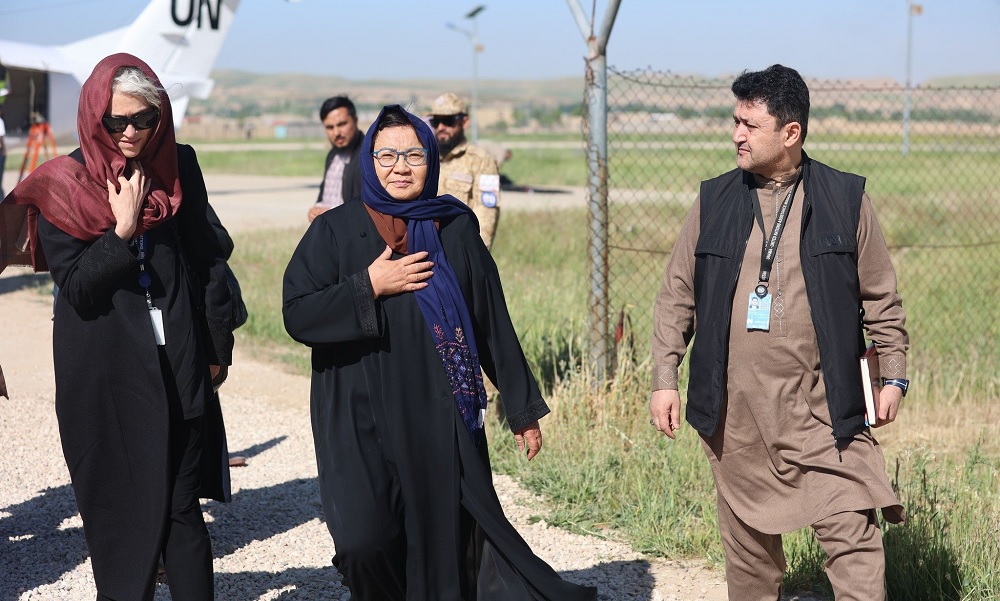
Roza Otunbayeva, Head of the United Nations Assistance Mission in Afghanistan (UNAMA), recently visited the city of Maimana in northern Afghanistan, where she met with local officials, entrepreneurs, and UN staff.
UNAMA wrote on its Facebook page on Sunday, that during the visit, entrepreneurs — including women — met with Otunbayeva, and requested support to facilitate access to new markets, particularly in Uzbekistan.
UNAMA further stated that among these entrepreneurs was a group of women who, with the support of the United Nations Development Programme (UNDP), had established a tailoring workshop.
They expressed their appreciation for the support received and spoke about the significant growth and development of their business.
UNAMA added that the organization remains committed to promoting economic opportunities and empowering Afghan communities, especially women.
Latest News
Senior Indian official meets with FM Muttaqi in Kabul
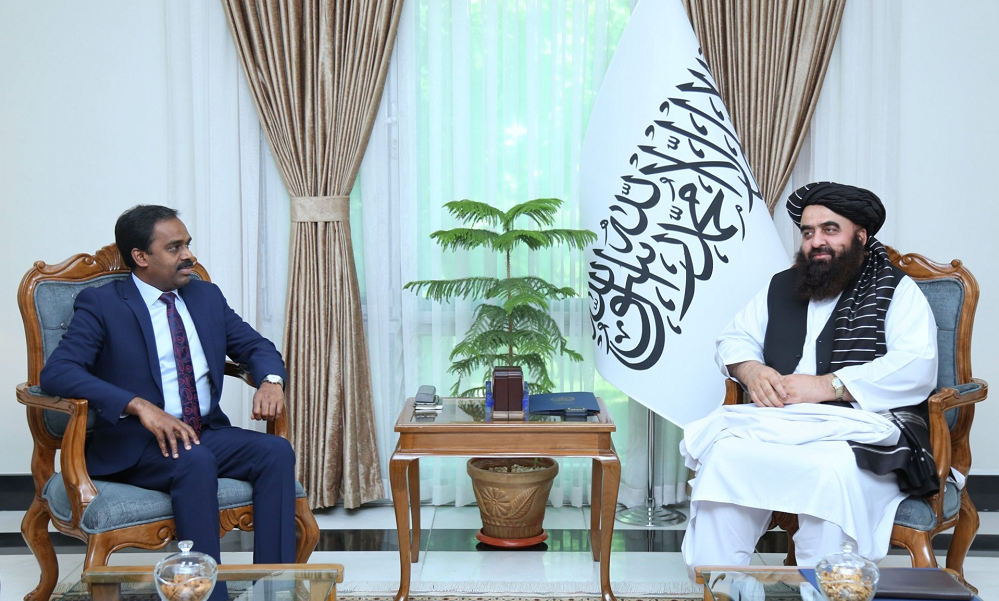
Anand Prakash, head of the Afghanistan, Iran and Pakistan Division of the Indian Ministry of External Affairs, met with Acting Foreign Minister Amir Khan Muttaqi in Kabul for talks on various issues.
According to a press release issued Sunday by the Afghan Foreign Ministry, bilateral political relations, trade, transit and recent political developments in the region were discussed in the meeting.
Muttaqi stressed the need for the expansion of diplomatic and economic relations between the two countries and explained that Afghanistan currently offers favorable opportunities for investment. He said Indian investors should take advantage of these opportunities.
He also said that facilities should be created for the movement of people between Afghanistan and India and the issuance of visas for medical purposes, students and businessmen should return to normal.
Meanwhile, Prakash said that relations with Afghanistan are important for India and he hopes that these relations will expand further in various fields.
He stressed that India will continue its cooperation with Afghanistan and wants to invest in some infrastructure projects and restart projects that were paused for some time.
The two sides also emphasized the expansion of relations, the exchange of delegations, visa facilitation and bilateral cooperation.
Latest News
Afghanistan ‘fully ready’ for Trans-Afghan railway project: Muttaqi
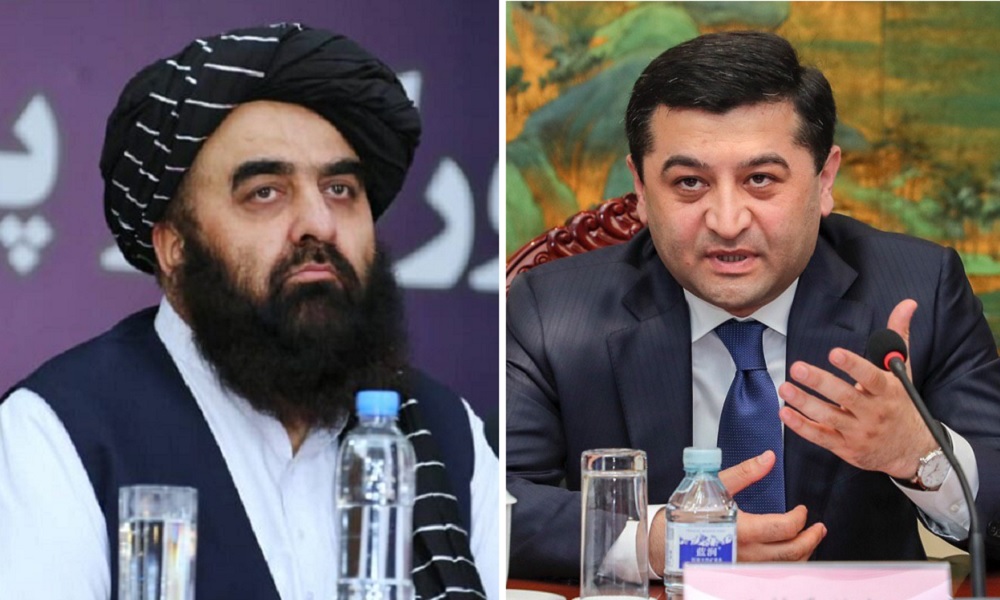
Acting Foreign Minister Amir Khan Muttaqi has said in a phone call with his Uzbek counterpart that Afghanistan is fully prepared for the implementation of the Trans-Afghan railway project.
During the call, the two sides discussed strengthening bilateral and multilateral relations, as well as expanding political, economic and transit cooperation, the Ministry of Foreign Affairs in Kabul said in a statement on Sunday.
Uzbek Foreign Minister Bakhtiyor Saidov noted that Afghanistan’s exports to Uzbekistan have tripled in the first four months of 2025 compared to last year. He vowed to create more facilities in the field of trade and transit between the two countries, especially in issuing visas to Afghan citizens.
Meanwhile, Amir Khan Muttaqi said that Afghanistan is fully prepared for the implementation of major economic projects such as the Trans-Afghan railway project and for the strengthening of political, trade and transit cooperation with Uzbekistan. He said that the existing opportunities should be utilized for the mutual benefit of the two countries.
The two sides also discussed the holding of a trilateral meeting between Afghanistan, Uzbekistan and Pakistan at the level of foreign ministers and agreed to coordinate through diplomatic channels to determine the exact date and place of the meeting.
The three neighboring countries signed an agreement in February 2021 to construct a 573-kilometer railway line through Afghanistan, connecting landlocked Central Asia to Pakistan seaports, with an estimated cost of $4.8 billion to enhance regional economic connectivity.
Pakistan’s Deputy Prime Minister and Foreign Minister Ishaq Dar held a telephone conversation with Uzbek foreign minister last Thursday to discuss the Trans-Afghan railway project.
Dar expressed hope that the three countries would soon sign a framework agreement on this important regional project.
-

 Sport4 days ago
Sport4 days agoSri Lanka A defeats Afghanistan A by 4 wickets in Abu Dhabi
-

 Business5 days ago
Business5 days agoAfghanistan’s growth prospects remain uncertain amid global uncertainty: World Bank report
-
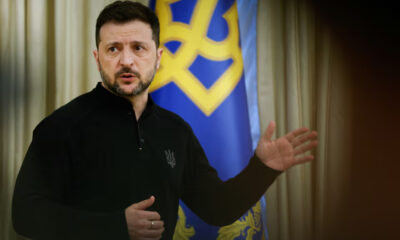
 World5 days ago
World5 days agoUkraine ready to hold talks with Russia once ceasefire in place, Zelenskiy says
-

 Latest News4 days ago
Latest News4 days agoAWCC activates new site in Nangarhar’s Kuz Kunar district
-

 Latest News4 days ago
Latest News4 days agoTarig Ali Bakheet and Japan’s Deputy Foreign Minister discuss Afghanistan’s situation
-

 Climate Change5 days ago
Climate Change5 days agoPowerful earthquake of 6.2 magnitude shakes Istanbul
-

 Business4 days ago
Business4 days agoPakistan’s deputy PM discusses Trans-Afghan Railway Line project with Uzbek FM
-

 Latest News5 days ago
Latest News5 days agoSpecial meeting will be held to launch Afghanistan–Russia joint commission, says Kabulov


